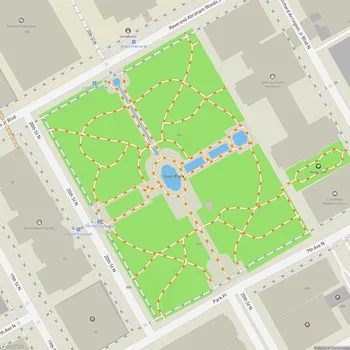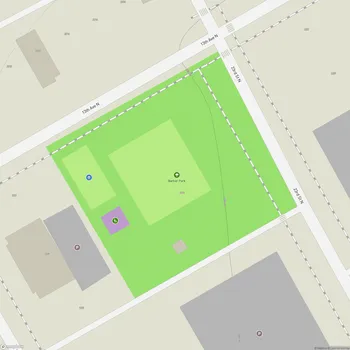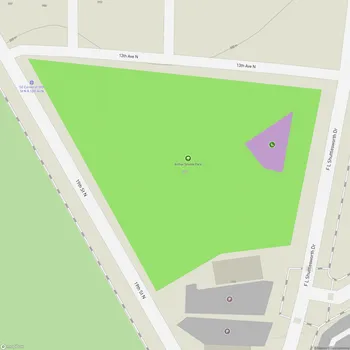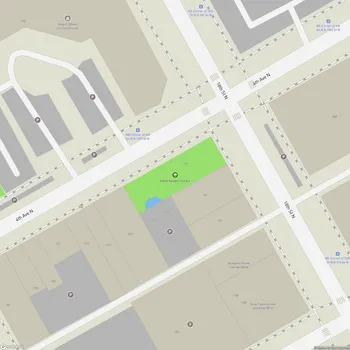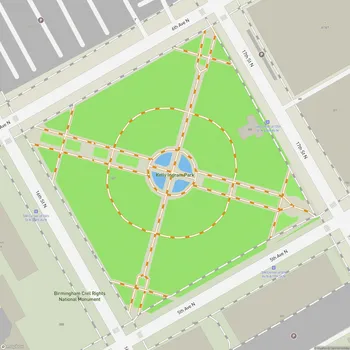City Walk BHAM
City Walk BHAM Map
About City Walk BHAM in Birmingham
City Walk BHAM is a 31-acre public space located in Birmingham, Alabama, stretching for 10 city blocks from 15th Street North to 25th Street North. The park was constructed under the newly-replaced I-59/20 downtown viaduct, transforming previously underutilized space into a vibrant community area.
Opened in time for the 2022 World Games, City Walk BHAM serves as a connector between Birmingham's Central Business District and the northern neighborhoods, helping to bridge a long-standing urban divide created by the original interstate construction. The park spans approximately one mile in length, offering a variety of recreational and social spaces for residents and visitors.
The design of City Walk BHAM incorporates elements that celebrate Birmingham's industrial heritage. Corten steel, which develops a rust-like appearance when exposed to weather, is used in various features throughout the park, including wayfinding systems and architectural elements. This material choice pays homage to the city's history in the steel industry.
City Walk BHAM also includes educational components, such as the Civil Rights Story Zone along 16th Street North. This area provides gathering spaces for school groups and tourists, offering important historical context about Birmingham's role in the Civil Rights Movement.
The park is divided into several themed areas, each offering unique experiences. For instance, the Destination Playground features play equipment and landscaping that represent Alabama's five physiographic regions: Coastal Plain, Piedmont, Alabama Ridge and Valley, Cumberland Plateau, and Highland Rim.
City Walk BHAM operates daily, with general hours from 9 AM to 6 PM. However, specific amenities like the Barkery (dog park), pickleball courts, skate park, and roller rink may have different operating hours that change seasonally.
While the park has been successful in attracting visitors and meeting many of its original goals, it faces ongoing challenges related to funding and maintenance. The operating costs, estimated at $115,000 to $120,000 monthly, have led to discussions between local officials and the Alabama Department of Transportation about long-term financial sustainability.
